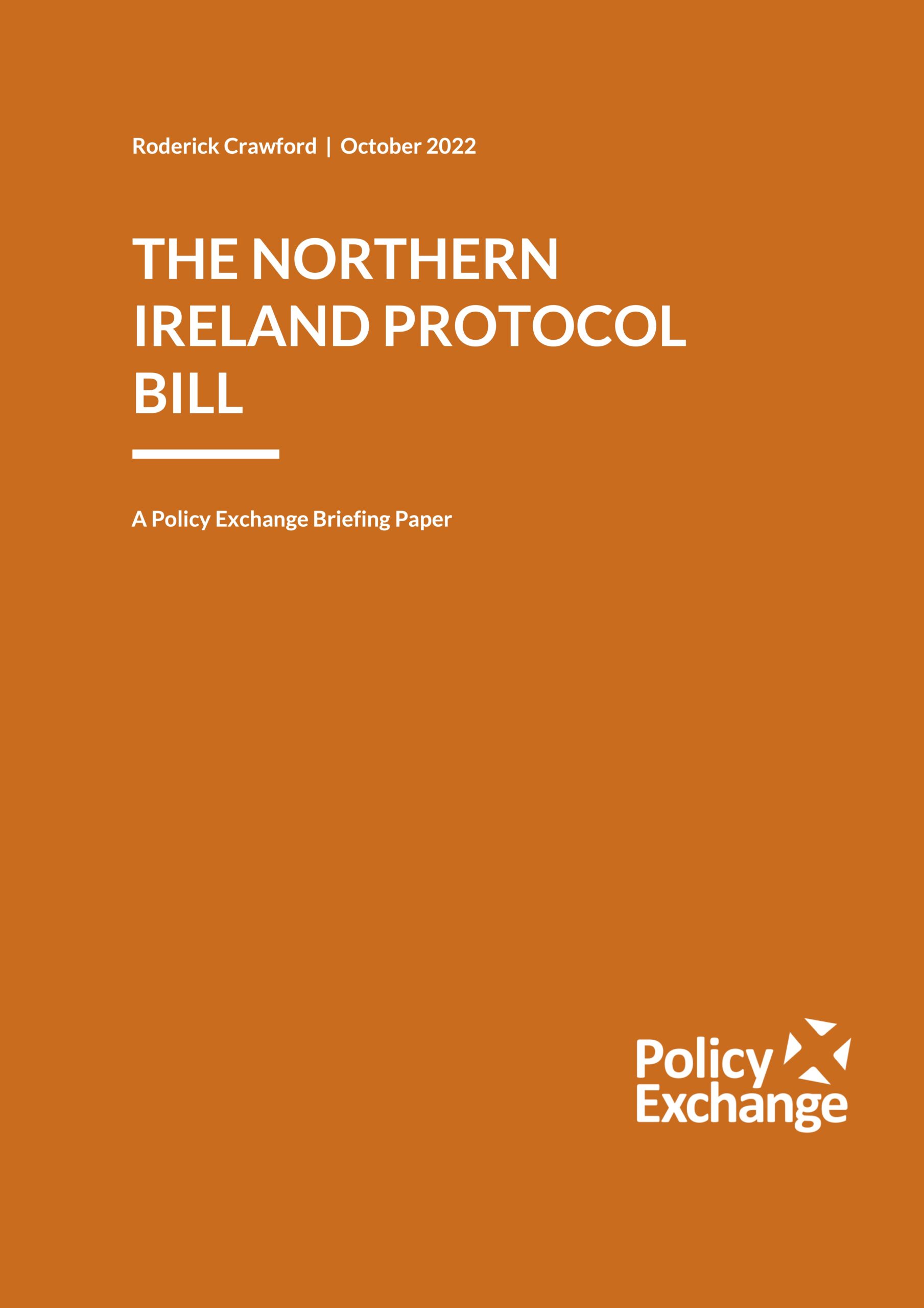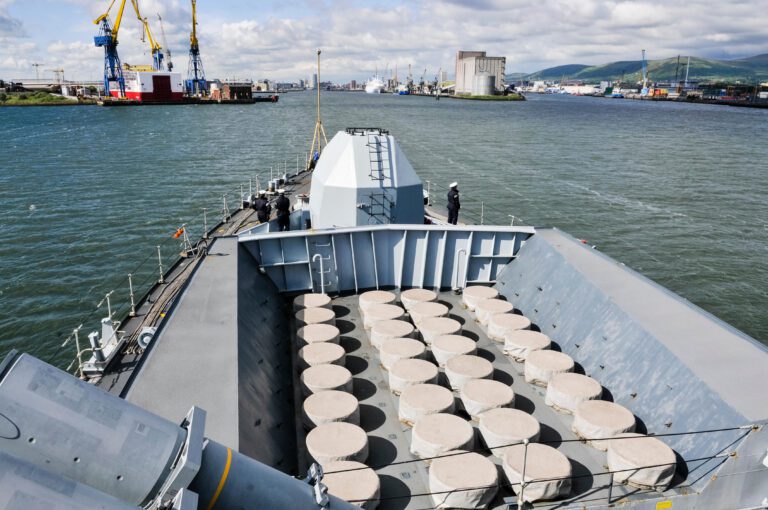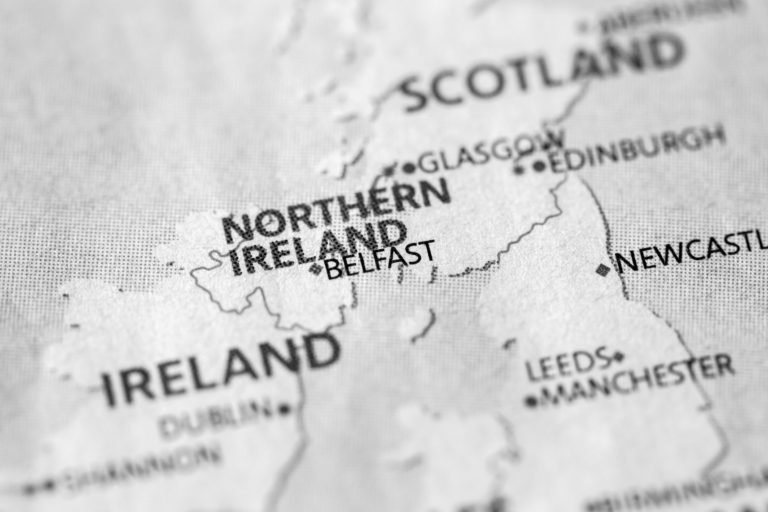Authors
Content
The Context
| The Protocol was designed to avoid a hard border by aligning Northern Ireland with the EU Single Market rules for goods, whilst upholding the Belfast (Good Friday) Agreement. However, in practice the Protocol has failed to manage that balance and has substantially undermined the Belfast (Good Friday) Agreement. |
| The EU still denies that the Protocol has flaws in its design – particularly regarding treatment of the Great Britain/ Northern Ireland relationship. The UK has sought to find a new balance in the arrangements for Northern Ireland but the EU has ruled out renegotiation and is only offering talks along the lines of those previously held. This can’t solve the problem. |
| The UK has legal obligations to secure stability in Northern Ireland as the sovereign government — specifically recognised in the Agreement between the Government of Great Britain and Northern Ireland and the Government of Ireland 1998 (the British-Irish Agreement 1998). |
| The Belfast (Good Friday) Agreement is the primary and prior agreement, one of international significance which the signatories to the Protocol have committed to uphold ‘in all its dimensions’. The UK is duty bound to act to secure that Agreement. In the absence of a re-negotiated Protocol, this Bill is required to restore the balance of the political settlement established by the Belfast Agreement. |
Why do we need the NI Protocol Bill?
The conflict between the Belfast (Good Friday) Agreement and the Protocol has brought about the collapse of the consensus around the governance of Northern Ireland. Nothing like this has occurred since 1998. It is the key failure of the political solution that the Protocol represents. The political chaos within unionism — exemplified by the rapid changes in leadership of the DUP — followed by the collapse of the institutions in February 2022 are the manifestations of this crisis of confidence.
Addressing that conflict requires a deal that goes beyond the current mandate of the European Commission, yet the Commission has so far refused to request a new mandate to negotiate such an agreement. Failure to address this is a breach of the Protocol’s objectives and the European Council’s mandate to the Commission1European Council Negotiating Guidelines, 22 May 2017.. In the absence of a new mandate and therefore of an agreement, the UK as the sovereign government is obligated to address the conflict, as it has made clear since mid-2019.
Next chapterUpholding International Law
The UK is seeking to fulfil its obligations as the sovereign government in Northern Ireland — as recognised in international law and in the Belfast (Good Friday) Agreement. The key condition set by the European Council was that ‘Nothing in the Agreement should undermine the objectives and commitments set out in the Good Friday Agreement’.2Ibid, paragraph 14
The European Commission continues to insist that the Protocol is the only solution that can protect the Belfast (Good Friday) Agreement. It is hard to see how this position can now be justified given the collapse of the consensus that has underpinned power-sharing government in Northern Ireland. Creating a consensus on how Northern Ireland is governed is the chief achievement of the Belfast (Good Friday) Agreement — not the absence of a hard border.
Any solution was required to be operationally and legally sound: it has proved in practice not to be operationally sound. The Protocol can only operate on the basis of unilateral derogations, which, whilst having the support of a majority of the public and businesses in Northern Ireland, are considered a breach of international law by the EU. The EU is taking legal action against the UK for these derogations.
The Protocol’s objectives have not been met. Of the eight stated objectives in Article 1, only two are clearly met (avoiding a hard border and securing North-South cooperation); the other objectives are not met in full, not met or actually undermined by the Protocol. For example:
- The key aim of the Protocol3‘Key aim’ based on the rationale of the Protocol and the EU’s own negotiating mandate, as cited above is: does the agreement “protect the 1998 Agreement in all its dimensions”? It is clear that it does not do so: of the three Strands of the agreement, the institutions within two of them no longer work, largely due to the Protocol’s failure to protect East-West cooperation and the unionist perspective that ‘parity of esteem’, which the UK government is required uphold under the Belfast Agreement, has been abandoned
- Another objective of the Protocol is that it “respects the essential state functions” of the UK government (Art 1 ii). The UK Government has obligations to maintain stability and the economy of Northern Ireland — confirmed in the British-Irish Agreement of 1998 which is also international law. This Bill is the UK exercising its essential state functions in fulfilling its obligations to a prior international treaty and upholding the Belfast (Good Friday) Agreement.
There is a clash of international obligations for the UK. To uphold the Protocol’s architecture and implementing measures means supporting a framework of rules that have brought the Belfast (Good Friday) Agreement to its knees. That is contrary to the obligations the UK has under the British-Irish Agreement 1998 as both co-signatory and according to the additional obligations the UK has as the sovereign government, including those specifically set out in that agreement.
The UK Government has always prioritised its obligations to the Belfast (Good Friday) Agreement over any obligations under the Withdrawal Agreement where there is conflict. That conflict between upholding the Protocol’s architecture and the Belfast (Good Friday) Agreement— the key objective of the Protocol — can no longer be fudged — it has become critical.
Next chapterNegotiations with the European Commission
The EU has so far refused to renegotiate the Protocol. It will only talk and explore flexibilities within the Protocol. Any change beyond that would require a change in the mandate of the Commission. The Commission has not asked for a change in its mandate — even though the core condition of its original negotiating mandate has been breached.
The implementation of the Protocol, even with derogations, demonstrated that it could not work operationally; the consequences of the Protocol for the settlement based on the Belfast (Good Friday) Agreement forced the UK to seek renegotiation. This was formally put forward in the command paper ‘The Northern Ireland Protocol: The Way Forward’, 21 July 2021. The EU refused, responding instead with its own proposals in October 2021 based on technical adjustments to the existing Protocol. Despite impressive headline figures of its impact on checks, the UK Government and business assessed it was insufficient to materially affect the operation of the Protocol.
UK preference remains a negotiated outcome as confirmed by the Prime Minister and by the UK’s 13 June 2022 paper 4“Our preference is to negotiate solutions to the problems being faced by businesses, citizens and communities. Unfortunately, after eighteen months of talks we have not so far been able to agree on an outcome that provides a sustainable basis for operating the Protocol.”, NI Protocol: the UK’s solution. Foreign, Commonwealth and Development Office, 13 June 2022, page 2. “What I want to do is find a way forward and my preference is a negotiated solution with the EU,” the Prime Minister told CNN in an interview broadcast, Reuters, 25 September 2022.. Talks are in process now, but the EU remains adamant that the negotiating flexibility that the UK seeks, and which requires the opening of the EU’s mandate, is not on offer. This appears to be confirmed by EU sources with the current talks revisiting the agenda of February 2022 and the European Commission’s October 2021 non-papers.
Next chapterUsing Article 16
The EU, which triggered Article 16 on 29 January 2022 before rescinding it, has made it clear that use of Article 16 would be seen as a ‘provocative act’5Liz Truss warned by Brussels to avoid ‘provocative act’ in Brexit talks, Financial Times, 1 September 2022.. From a UK perspective, the conditions justifying use of Article 16 are in place, as the July 2021 command paper makes clear, and few people would now dispute this.
It is most likely that Article 16 is being held back as a last option, though, admittedly, that point seems to be fast approaching. It can be expected that if current talks cannot be translated into negotiations, then the option of triggering Article 16 will return to the table. So far, the EU has, ironically, preferred limited UK unilateral actions to taking the Article 16 route that is set out in the Protocol and that may continue even with sensitive and precise use of the powers under the Northern Ireland Protocol Bill. If not, it is possible that the powers will be used under Article 16 to reshape — there is no suggesting of a tearing up — the Protocol.
Article 16 processes, in themselves, are not capable of resolving the problems of the Protocol – the problem lies deeper than this safeguard can address itself. It may, however, facilitate a proper re-negotiation or lead the UK through to arbitration under the Withdrawal Agreement and finally to taking a stand under ‘necessity’ or “a fundamental change of circumstances” under the Vienna Convention on the Law of Treaties. Both have robust arguments behind them given the impact on the Belfast (Good Friday) Agreement and the broader political stability of Northern Ireland.





